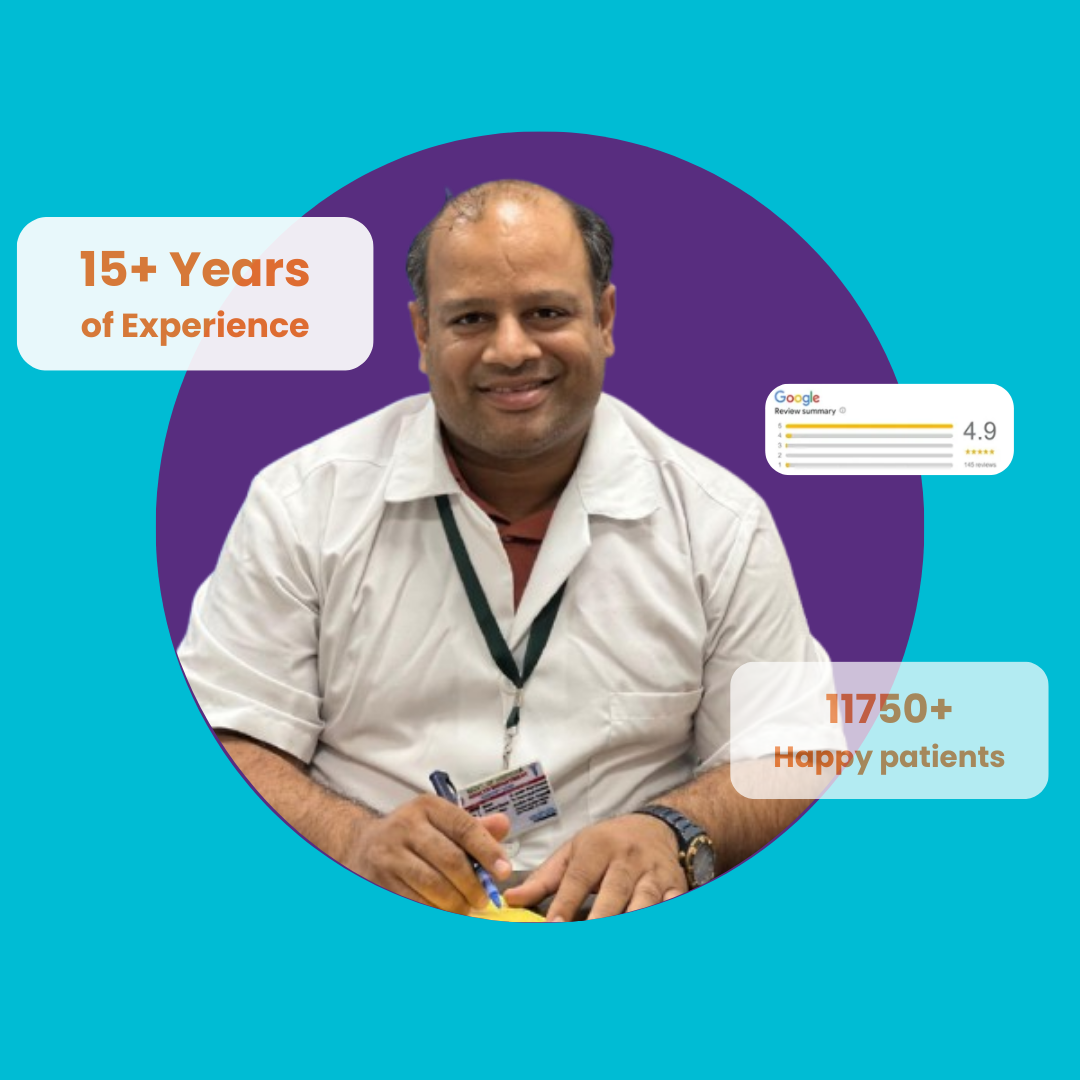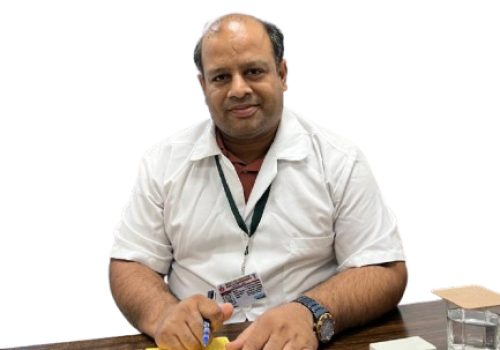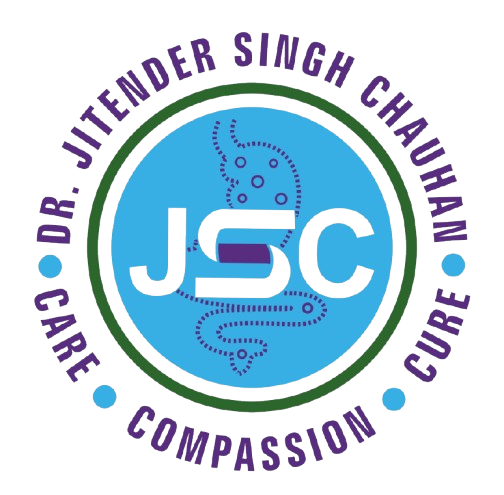Dr. Jitender Singh Chauhan
Best Onco Surgeon in Haryana
This is where Dr. Jitender Singh Chauhan steps in as one of the most trusted Gastro Surgeons and Oncology experts in Haryana, with over 15 years of experience in treating various complex gastrointestinal and oncological conditions. Dr. Jitender Singh Chauhan stands out among other specialists in Haryana due to his extensive training, compassionate care, and dedication to providing the best surgical outcomes for his patients.


Dr. Jitender Singh Chauhan
Dr Jitender Singh chauhan is the leading liver cancer specialist in India. He has treated hundreds of patients with liver cancers. He has more than 15+ years of experience in treating liver cancer.
Management of liver cancer involves proper diagnosis & early treatment. Diagnosis is performed with Triple phase CT scan & AFP level. The treatment involves surgery, chemotherapy, TACE, TARE or RFA.
Trusted Name
11500+ satisfied patients
Rich Experience
Having 15+ years of experience
Safe Surgical Hands
1000+ successful operations performed
Dr. Jitender Singh Chauhan experience as a pancreatic cancer surgery doctor
Dr. Jitender Singh Chauhan, a highly experienced and skilled GI cancer specialist and surgical oncologist, is based in Ambala Cantt, Haryana, India. Known for his exceptional surgical precision and compassionate patient care, Dr. Chauhan has established himself as a leading expert in gastrointestinal cancer surgeries. His expertise spans across treating complex cases involving liver, stomach, pancreas, and colorectal cancers, positioning him as one of the top oncologists in the region.
Dr. Jitender Singh Chauhan is recognized not only as a leading GI cancer specialist in Ambala Cantt, Haryana but also across the state and beyond. Known for his exceptional surgical precision, Dr. Chauhan’s expertise spans a wide array of advanced surgical techniques, tailored to achieve the best possible outcomes for patients with complex gastrointestinal cancers. His commitment to innovation and patient care ensures that his approach is both cutting-edge and minimally invasive.
Dr. Jitender Singh Chauhan’s pioneering contributions in gastrointestinal cancer surgery have established him as a leader in the field, particularly across Haryana and India. His innovative approaches to surgical interventions, combined with his vast expertise in complex GI cancer surgeries, position him as a preferred choice for individuals seeking advanced and compassionate cancer care.
Stages and Staging of pancreatic cancer
Pancreatic cancer is a serious and aggressive disease that typically begins in the tissues of the pancreas, an organ that lies behind the lower part of the stomach. Understanding the stages of pancreatic cancer is crucial for determining the most appropriate treatment options. Pancreatic cancer progresses through the following stages:
Stages of Pancreatic Cancer
Stage 0 (Carcinoma in Situ):
At this stage, abnormal cells are confined to the innermost lining of the pancreatic ducts. The cancer has not spread beyond this layer.
Stage 1:
In Stage 1, the cancer is small and localized within the pancreas. It has not spread to nearby lymph nodes or distant organs.
Stage 2:
Stage 2 pancreatic cancer has grown beyond the pancreas but is still confined to nearby tissues and may have spread to nearby lymph nodes. However, it has not spread to distant organs.
Stage 3:
At Stage 3, the cancer has spread to major blood vessels near the pancreas and may involve nearby lymph nodes, but it has not metastasized to distant organs.
Stage 4:
Stage 4 pancreatic cancer is advanced, where cancer has spread (metastasized) to distant organs, such as the liver, lungs, or distant lymph nodes.
The staging of pancreatic cancer helps doctors determine the cancer’s spread and guide the treatment plan. Diagnostic tools used to stage pancreatic cancer include:
Diagnostic Tools for Pancreatic Cancer
CT Scan:
A CT scan (computed tomography scan) provides detailed cross-sectional images of the pancreas and surrounding organs. It helps assess the tumor’s size, spread, and involvement of nearby tissues.
Endoscopic Ultrasound (EUS):
An EUS uses an endoscope equipped with an ultrasound probe to get detailed images of the pancreas and surrounding lymph nodes. It is particularly helpful in determining how far cancer has spread into surrounding structures.
MRI Scan:
MRI (magnetic resonance imaging) is another imaging technique that provides detailed images of the pancreas and surrounding tissues, which helps in staging the cancer and planning treatment.
PET-CT Scan:
A PET-CT scan (positron emission tomography-computed tomography) combines two imaging techniques to assess the cancer’s metabolic activity and detect metastasis.
Blood Tests – CA 19-9 Levels:
CA 19-9 is a tumor marker that may be elevated in pancreatic cancer. Although not specific, it can be used to monitor treatment response and detect recurrence.
Treatment Methods for Pancreatic Cancer
Surgery
Surgery is one of the main treatment options for pancreatic cancer, especially in its early stages. Dr. Jitender Singh Chauhan, an expert in pancreatic cancer surgery, uses advanced surgical techniques to remove cancer while preserving as much healthy tissue as possible. Surgical options include:
- Whipple Procedure: This is the most common surgery for pancreatic cancer. It involves removing the head of the pancreas, part of the small intestine, the gallbladder, and the bile duct.
- Distal Pancreatectomy: This involves removing the tail of the pancreas, and sometimes part of the body, along with the spleen.
- Total Pancreatectomy: In some cases, the entire pancreas may be removed, especially if cancer is widespread within the pancreas.
Chemotherapy
Chemotherapy is often recommended to shrink the tumor before surgery or to eliminate any remaining cancer cells after surgery. Dr. Jitender Singh Chauhan collaborates with oncologists to create individualized chemotherapy plans for patients with pancreatic cancer.
Radiation Therapy
Radiation therapy uses high-energy beams to target and destroy cancer cells. It is often combined with chemotherapy to shrink the tumor before surgery or to treat residual cancer after surgery.
Why Choose Dr. Jitender Singh Chauhan?
Dr. Jitender Singh Chauhan, a highly experienced and skilled GI cancer specialist and surgical oncologist, is based in Ambala Cantt, Haryana, India. Known for his exceptional surgical precision and compassionate patient care, Dr. Chauhan has established himself as a leading expert in gastrointestinal cancer surgeries. His expertise spans across treating complex cases involving liver, stomach, pancreas, and colorectal cancers, positioning him as one of the top oncologists in the region.
Dr. Jitender Singh Chauhan, a highly respected onco surgeon in Haryana, leads a dedicated and expert team at his practice. Working alongside experienced medical oncologists, radiation oncologists, and interventional radiologists, Dr. Jitender Singh Chauhan provides comprehensive care for patients dealing with various cancers.
Dr. Jitender Singh Chauhan, a highly esteemed onco surgeon in Haryana, is renowned for his expertise in managing advanced stages of cancer, including the complex treatment of stage 4 cancers. With a focus on gastrointestinal (GI) cancers, Dr. Chauhan’s practice provides a wide range of cancer care services, including chemotherapy and surgical interventions.
Frequently Asked Questions
Yes, pancreatic cancer can be cured if detected in its early stages. Surgery, often followed by chemotherapy or radiation therapy, offers the best chance of cure for localized pancreatic cancer.
Pancreatic cancer is diagnosed through imaging tests like CT, MRI, and PET-CT scans, as well as endoscopic ultrasound and blood tests for tumor markers such as CA 19-9.
A gastrointestinal cancer specialist with expertise in surgical oncology is the best option for treating pancreatic cancer. Dr. Jitender Singh Chauhan is a highly skilled GI cancer surgeon with extensive experience in treating pancreatic cancer.
Pancreatic cancer typically affects people over the age of 60, but it can occur earlier, especially in individuals with genetic predispositions or risk factors such as smoking.
Pancreatic cancer can be aggressive and may spread quickly, especially if not detected early. This is why early diagnosis and treatment are critical.
New treatments for pancreatic cancer include targeted therapies, immunotherapy, and advanced surgical techniques like robotic-assisted surgery, which provide better precision and faster recovery.
While Stage 4 pancreatic cancer is advanced, it is still treatable. Treatment focuses on controlling the disease, relieving symptoms, and improving the patient’s quality of life. Chemotherapy, targeted therapy, and palliative care are commonly used at this stage.

